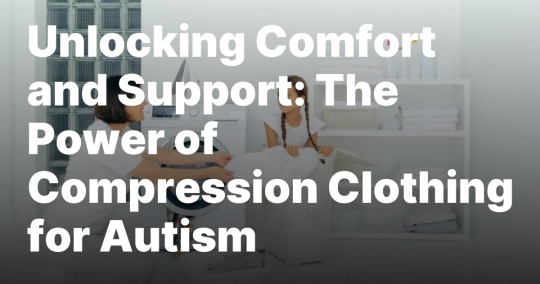#Improved Behavior
Explore tagged Tumblr posts
Text
"it's not that deep" not yet but I've got a shovel and fan theories and digging makes great exercise!
#sometimes in literary analysis things line up like an accidental pun#no it's *probably* not intentional but that doesn't make it less amusing#I'm building this theory like reverse jenga not bc it's structurally sound but because the block were lying around & im having a good time#anyway i think we should replace irl conspiracy theories (bigoted rightwing cult behavior)#with elaborate insane viral fan theories that everyone on the internet pretends to take seriously#everyone goading each other on digging up increasingly obscure 'evidence' treating it like it's already been made canon#basically red string and a cork board levels of crazy but make it a social media activity#but at the end of the day it's a joke everybody's in on. Yes And improv at its finest#call that Goncharov's Razor
3K notes
·
View notes
Text
Unlocking Comfort and Support: The Power of Compression Clothing for Autism
Discover how compression clothing can positively impact behavior and posture in individuals with autism. This comprehensive guide explores the transformative power of compression garments and provides valuable insights for parents and caregivers. Table of Contents Introduction Definition of Compression Clothing Importance of Addressing Sensory Processing Challenges Overview of the…

View On WordPress
#Autism#CalmCare#Case Studies#Comprehensive Guide#Compression Clothing#FAQs#Garment Care#Improved Behavior#Miss Jaime O.T.#Motor Control#Occupational Therapy#Posture#real-life experiences#Sensory Input#Sensory Processing Disorder#Sensory Regulation#Sizing and Fit#Testimonials#Therapeutic Resources#Valley Area#Wellness and Fitness
1 note
·
View note
Text
Cognitive Techniques To Change Your Thoughts ✨✨
Cognitive techniques are strategies used in cognitive therapy to help you identify and change negative thoughts and beliefs. These techniques should be practiced regularly so that they become habits.
Cognitive Restructuring: This involves identifying and challenging negative or irrational thoughts and replacing them with more positive or rational beliefs.
Thought Stopping: When you notice a negative thought entering your mind, you can mentally shout "Stop!" This interrupts the thought process and gives you a chance to replace the negative thought with a positive one.
Mindfulness and Meditation: These practices help you become more aware of your thoughts and feelings in the present moment. When you observe your thoughts without judgment, you gain insight into negative patterns and choose to let them go.
Journaling: Writing down your thoughts can help you process and analyze them. With time you can identify patterns and work on changing negative thought cycles.
Positive Affirmations: Repeating positive statements can help counteract negative self talk and reinforce positive beliefs about yourself.
Evidence Collection: When faced with a negative belief, ask yourself, "What evidence do I have that supports or refutes this thought?" This can help you see things in a more balanced way.
Decatastrophizing: If you tend to imagine the worst scenario, ask yourself how likely it is to happen and what other possible outcomes there might be. This can help you view situations more realistically.
Labeling: Instead of saying "I am a failure," label the thought as "a negative thought about my abilities."
Distraction: Engaging in an activity or hobby can divert your attention from negative thoughts and give your mind a break.
Scheduling Worry Time: Instead of ruminating on worries throughout the day, set aside a specific time to process them. This can prevent constant worry and allow you to focus on other tasks.
Challenging Cognitive Distortions: Recognize and challenge cognitive distortions like black-and-white thinking, overgeneralization, and personalization.
Visual Imagery: Visualize a place or situation where you feel calm and happy. This can help shift your focus from negative thoughts.
These are very simple descriptions and examples of cognitive techniques. I listed the ones we can put into practice on our own. There are more in depth methods and practices used by doctors on different fields of study and practice. I can list, as well as add upon the information listed here.
#cognitive science#cognitive behavioral therapy#psychology#personal improvement#personal development#personal growth#self help#self improvement#self care#limiting beliefs#positive mindset#affirmations
5K notes
·
View notes
Text
its so frustrating how a lot of scu fans cant handle other sonic fans not having the exact same taste in sonic media that they do. like i feel like you can say something negative about literally any other sonic media on here and people generally wouldnt care that much but the second you say anything less than positive about the movies people start getting all weird about it and trying to argue with you ive had it happen to me and seen it happen to others as well .... like the sonic franchise is very big and has many different media types and writing styles not everyone is going to uncritically love everything. get over it ? im not trying to be mean but idk what else to tell you
#this isnt solely about the person who sent me that ask last night i was actually already thinking abut it before#(though it is very confusing that they did i literally havetn been talking about the movies lately they just yelled at me out of nowhere#i mean they apologized so no big deal i guess but like. huh)#i mean i understand not wanting to see a bunch of hate of something you like and its fine to disagree with peoples criticisms#but people are being VERY unreasonable about it when it comes to sonic 3#cant help but wonder if this sort of behavior is a result of the fact that a lot of people acting this way got into sonic through the movie#after sonic's reputation improved a bit and dont know what constant widespread hate for everything sonic actually looks like#so they dont know how to handle criticism or opinions they disagree with regarding what sonic media is good or bad#and place sonic fans criticizing it because they love sonic and think sonic and its stories and characters deserves better#in the same category as people who just mindlessly hate on sonic for no reason#not that im saying anyone who likes the movies is a new fan or that new fans are fake fans but you get what i mean hopefully#also this is going into hater mode but personally. sonic 3 is one of the least deserving candidates of this type of defensiveness#like. for one its not that goodand actively disrespects the source material in so many ways. but thats more of a subjective opinion i guess#but also its a very popular and successful movie . most people who watched it liked it from what ive seen#randos on tumblr not liking it isnt taking away from that ??????#also paramount doesnt deserve your money anyway#like whats the point in defending it so hard . who cares..
165 notes
·
View notes
Text






self care days 🧘♀️
#girlblogging#it girl#that girl#vanilla girl#clean girl#just girly things#girly stuff#cleaneating#pinterest#blogger#girlboss behavior#girl blogger#self love#self care#self improvement#skin care#clear skin#pink pilates princess#yoga pilates#yogaaesthetic
922 notes
·
View notes
Text
It can be extremely difficult to take constructive criticism, but it's imperative that you work on making yourself a safe person to criticize. People need to know that if they come to you with constructive criticism, you're not gonna explode on them with volatility or start shitting on yourself (which puts them in the uncomfortable position of then having to comfort you). If you act like that, then it's going to be incredibly difficult to maintain healthy relationships of any kind. Communication is key; constructive criticism is part of communication. Be open to the idea that you can be wrong and have things you need to work on, or that you can be wrong and not be the worst person on the planet.
#self improvement#reminder#i recently interacted with someone who was extremely explosive and manipulative#you can be manipulative without meaning to be btw#and this person couldn't accept any form of criticism without literally exploding with emotion#and blaming other people constantly#it fucking sucked especially because this behavior was normalized within the friend group#and for someone who is my age and spouts the importance of maturity and constantly critcizes others#that shit is beyond unacceptable
109 notes
·
View notes
Text

#thoughts#spilled thoughts#emotions#emotional intelligence#cognitive behavioral therapy#self help#self improvement#self therapy#therapy#mental health#positivity#black moodboard#aesthetic#black girl luxury#black tumblr#therapyforblackwomen
221 notes
·
View notes
Text
If it kept you alive then don't regret it.
What's important is surviving. Being alive . By whatever means possible.
Forgive yourself for all those decisions you made, you think were wrong and do the right thing now.
You are here. You are alive. It's all that matters. I am proud of you.
#self destruction#self destructive behavior#self destructive tendencies#obsessive compulsive behavior#self healing#self help#trauma survivor#sa survivor#mental health#healing#self love#self care#self improvement#dark feminine energy#level up journey#level up#wellness#positivity#positive mental attitude#glow up#it girl#gaslight gatekeep girlboss#healing journey#that girl#becoming her#becoming that girl#girlblogging#ptsd#mental illness#ash-says
328 notes
·
View notes
Text
This morning, my therapist shared this really useful hack and I feel like it could be useful to share: it is the pie chart method.
Essentially, it is a great tool to identify the behaviours, situations and events that caused a certain effect, in order for you to truly understand what really happened.
You simply draw a circle, identify the circumstances that caused the outcome and give each situation a percentage of its influence on the outcome.
For example: you bake a cake but it turns out horribly. It could be that 45% of the fault could be given to the oven that has malfunctioned, 30% to the wrongly calculated measurements of the ingredients, and 25% of your inexperience baking a cake. In the end, you will realise that it may not be your fault, and therefore you should stop being so angry at yourself.
Disclaimer: sometimes the fault could be given to you. This is a useful method for those of you who may constantly be harsh to yourselves.
#reflection#alone but not lonely#creator of my reality#becoming her#high value mindset#becoming that girl#that girl#curator of my reality#levelling up advice#levelled up mindset#levelling up tips#self care#self worth#self love#self improvement#self help#mental health#becoming the best version of yourself#personal excellence#wonyoungism#wake up call#therapy#becoming better step by step#mental heath awareness#mental health techniques#selfcare#cognitive behavioral therapy
41 notes
·
View notes
Text
Trauma is embedded within the body and ingrained in the brain. For lasting change, create strategies that address both the physical and mental aspects of trauma.
Physical Therapies:
Sensorimotor Psychotherapy: Leverages bodily sensations to navigate through trauma.
Yoga: Boosts bodily mindfulness and alleviates stress.
Somatic Experiencing: Helps discharge trauma-induced physical tension.
Tai Chi: Enhances equilibrium through deliberate movements.
Massage Therapy: Facilitates emotional liberation through easing muscle tightness.
Acupuncture: Activates the body's healing spots.
Craniosacral Therapy: Eases stress through soft manipulations of the skull and spine.
Breathwork: Employs breathing techniques for better physical and psychological well-being.
Dance Movement Therapy: Merges emotional expression with physical activity.
Mental Therapies:
Sensorimotor Psychotherapy: Bridges the gap between mental impacts and bodily reactions.
EMDR (Eye Movement Desensitization and Reprocessing): Aids in memory processing through eye movements.
CBT (Cognitive Behavioral Therapy): Aims to transform harmful thought patterns.
IFS (Internal Family Systems): Promotes healing within different parts of the psyche.
NLP (Neuro-Linguistic Programming): Modifies behavior via language and thought patterns.
Neurofeedback: Boosts brain activity for better function.
MBCT (Mindfulness-Based Cognitive Therapy): Combines mindfulness practices with cognitive therapeutic techniques.
Psychodynamic Therapy: Investigates the influence of past experiences.
Narrative Therapy: Helps individuals reframe their life stories.
Please remember that I am not a therapist. Speaking to a professional will help you figure out what course of action is better for you.
#mental health#emotional intelligence#mental wellness#health and wellness#cognitive behavioral therapy#self help#self improvement#self love#self awareness#self reflection#healing#feelings#personal improvement#personal development
595 notes
·
View notes
Text
You know? I can't help but I think back to the JayVik bridge scene in Arcane and while I definitely enjoy people's analysis and different interpretations of their argument during it, I feel like there's not enough about Viktor's behavior and mannerisms prior to said argument and how I feel like it can possibly say a bit more about his character and later actions in S2 (his desire to "heal/end" the world's suffering). Combine that with a really good analysis about an often overlooked flaw of his that I read not too long ago and an optional Safe Room dialogue with Sumi in P5R and yeah, something's manifesting a bit but they may also leave an unpopular opinion or two. But perhaps maybe later or something. 😅
Hint: This particular dialogue involves her reflecting and expressing regret over being so caught up and absorbed with her own problems that she failed to consider or notice that Dr. Maruki was probably suffering too like her and it's done in a way where it doesn't fully fault or invalidate her but also still calls out/addresses her past selfishness to showcase her character development. You see what I'm implying there?
#starchild rambles#ramblings#viktor#arcane viktor#viktor league of legends#arcane league of legends#arcane#viktor arcane#viktor the machine herald#viktor herald of the arcane#persona 5#p5#persona 5 royal#p5r#p5r spoilers#sumire yoshizawa#(kinda sorta)#and no I'm not saying Viktor's feelings weren't valid in this scene and he had every right to call out Jayce for his bs#buuuuut as much as he was trying to defend zuanites that are suffering by doing that...#he still ended up caught up in his own problems (which is understandable but still there were moments of selfishness you know?)#viktor is still kind with his intentions to improve the world but he's not flawless. it makes him more human.#his behavior and body language in Zuan after parting ways with Jayce kinda gives more fuel to what I'm thinking#but i could be overthinking it to be honest
27 notes
·
View notes
Text
i am not a vet and cannot give med recs but ohhhhh my god trazodone is not the answer to everything
#JAIL FOR VET#JAIL FOR ONE THOUSAND YEARS#we're just going to make everyone suffer for an extra 3 weeks? because? she's only had the dog a month?#bitch his behavior isn't going to IMPROVE with more time#this is a severely anxious and fear-aggressive dog and we're gonna need the big guns#job blogging
17 notes
·
View notes
Text
Carmy: [To Sydney] I feel like you were mad at me yesterday, and I don't know why... So I made a list of everything I did, and I'm going to try to not do any of them ever again.
#listen that's all he'd have to do#recognize his bad behavior and improve on it#no one wants him to change who he is but his trauma and resulting behavior doesn't have to be who he is#incorrect the bear quotes#the bear#carmy berzatto#sydney adamu#sydcarmy#source: parks and rec#incorrect quotes#the bear incorrect quotes
84 notes
·
View notes
Text
Femme Fatale Playbook: Questions To Ask When Evaluating Your Relationships
Whether it's a friendship, colleague or professional relationship, romantic/sexual relationship, one with a family member, mentors, or with yourself. Here are some questions to ponder when trying to evaluate someone's true character and intentions. Consider the following if you think someone is trying to deceive, manipulate, love bomb, or blindside you in any way.
Do they live with integrity? Not the "I'll start tomorrow" type of integrity, but do they live in alignment with their general life philosophy, opinions, and values?
Do they take accountability for their actions, behaviors, and mistakes? Listen to whether they acknowledge their role in how a situation played out automatically when recounting a story to you. Even when another person is at fault, do they see the situation objectively? Do they play the blame game to make themselves appear like the innocent victim at all times or try to see how their actions may have consequences for others?
When you share your successes with them, is there immediate action to double down on making you feel good or do they automatically claim your win by telling them how it makes them feel or feel about you?
When you make a mistake or share a failure with them, do they seek to understand/offer support, try to distance themselves from your claim/actions, or provide unsolicited advice?
When offering criticism, do they judge your behaviors, attitude, and actions, or do they immediately start evaluating your character?
Do they engage in conversations to win or understand?
Do they make assumptions about your or your perceptions before hearing what you have to say about a particular situation? Do they ask or assume how you're feeling?
In a conflict, do they initiate a conversation by opening a dialogue or immediately jump to criticize you? Do they speak about an issue with you first directly, or do they try to get others on your side behind your back before confronting you?
Are they loyal to you, or do you believe they can "switch sides" at any time? A friend to all is a friend to none.
Do they seek connection or perceive you as a source of consistent attention? Do they ask you how you are or go on endless monologues about themselves/their struggles? When speaking about yourself to them, do they ask questions and seem curious or act dismissive in an attempt to redirect the conversation back to themselves?
Do they put effort into acknowledging your needs, interests, or preferences? Do they do favors or nice things for you that don't necessarily benefit them or relate to their interests, purely because they know you would enjoy it, without having to ask once they know you well?
Do they respect your boundaries? Do they react with understanding and compassion or rage and condescension if they cross them?
Do you feel supported or like you're nagging when expressing your needs to them? Do they value your input or say they do yet dismiss your needs through their actions?
Do they more often say or show that they're a good person? The more someone needs to validate their character, the less likely they've confronted the truth about themselves.
#personal growth#people pleaser#toxic people#interpersonal relationships#relationships#friendship#family trauma#manipulation#narcissistic behavior#narcissismawareness#religious trauma#self improvement#femme fatale#journal prompts#art of seduction#robert greene#48 laws of power#social skills#dark feminine energy#dark femininity#the feminine urge#high value woman#it girl#high value mindset#female excellence#dream girl#female power#queen energy#people skills#femmefatalevibe
477 notes
·
View notes
Text
be open-minded, but think for yourself.
have a vision for the future, but accept the present as it is.
grow as a person, but don’t shrink for others.
#🦋.txt#suggestion#positivity#positive#growth#healing#self care#recovery#dbt#dbt skills#dialectical behavior therapy#self compassion#self improvement#self acceptance#self love#self esteem#self accountability#motivation#glow up#self help#reminders
15 notes
·
View notes
Text
I certainly have my own concerns about the treatment of moo deng but um. well i think some of you may just be racist
#this ^ isn't directed at any post in particular but instead a lot of comments ive seen. but now im gonna talk about other posts down here#and prefacing anything i put in the tags here with DONT TAKE MY WORD FOR IT DO YOUR OWN RESEARCH#but the biggest post ive seen going around rn about moo deng being mistreated and the general quality of khao kheow zoo is questionable#claims that the enclosure is mostly concrete seem to be false from all the sources i can find#the concrete section looks like its specifically around the feeding area which fits zoo care guidelines which specify that the feeding area#be a surface that can be easily cleaned separate from the substrate and is a surface present in other zoos#the lack of deep water also seems to be purposeful? older videos of the same enclosure show deeper water areas#and looking back through the news every baby pygmy hippo announcement from every zoo i could find mentioned periods where the baby had to#learn to swim and was slowly introduced from shallow water to deeper water as time passed#this was also corroborated by fowlers zoo and wild animal medicine volume 8 which suggests keeping the mother dry and then slowly#introducing water as the baby grows as a potential best practice#damn im treating this like a paper now. anyway the negatives#there are absolutely things that strike me as bad eg. public access to the hippos and the way the keeper interacts with them#for the keeper stuff in particular i'd really like to see input from someone who has experience as a zookeeper with pygmy hippos#the public access is something that i def think the zoo could improve on and even older footage from years ago shows people sticking like#selfie sticks and shit off the side of the railings and right into the hippos faces#however again the zoo seems to be making efforts to curb visitor behavior which is tough when you go from having 800 visitors a day to#4000+ and you can't remodel the whole exhibit right then and there#all this to say! just do your own research and take somewhat inflammatory comments on the internet with a grain of salt#also just to make it clear im not making any sweeping statements on khao kheow or the treatment of moo deng im just summarizing what i foun#based on what's being said in the most popular post on the subject ive seen.#for the potential like three people who will read all this hi :) hope ur having a nice day
30 notes
·
View notes